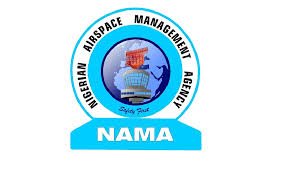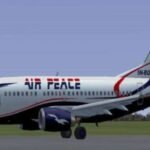The Nigerian Airspace Management Agency (NAMA) has reignited its campaign to revise the longstanding ₦11,000 tariff charged to airlines for each domestic flight, arguing that the current rate is unsustainable for maintaining aviation safety and advancing critical infrastructure.
NAMA cites surging operational costs, urgent infrastructure needs, and inflationary pressures as reasons the unchanged fee from 2008 can no longer support its safety and technology mandates.
The renewed call was made during a stakeholders’ retreat in Abuja, where the NAMA Director General, Engr. Farouk Ahmed Umar highlighted the disparity between rising airline ticket prices and stagnant regulatory fees. “In 2008, when the ₦11,000 charge was introduced, the average economy ticket cost about ₦16,000,” Umar noted. “Today, those same tickets cost between ₦150,000 and ₦200,000, yet the fee we collect remains unchanged. NAMA is a cost-recovery agency, not a charity.”
The retreat in Abuja, organised by the House Committee on Aviation, brought together lawmakers and industry stakeholders to discuss airspace safety, regulatory compliance, and infrastructure, aligning with global best practices.
Committee Chairman Hon. Abdullahi Idris Garba, represented by Deputy Chairman Hon. Festus Akingbaso, stressed the importance of collaboration across the aviation ecosystem. “This retreat is a vital step toward developing actionable plans that support a sustainable and secure aviation sector in Nigeria,” he stated.
NAMA’s appeal is rooted in its self-funding mandate covering air traffic control, navigational aids, and aeronautical communication systems—critical components of safe and efficient airspace management. The agency has made substantial investments in modernising its systems to meet global standards set by the International Civil Aviation Organisation (ICAO), including upgrading radar and surveillance technologies and implementing digital transformation initiatives.
However, airline operators, led by the Airline Operators of Nigeria (AON), have expressed strong opposition to any increase, warning of a potential domino effect on ticket prices. “The burden will inevitably be transferred to passengers, worsening the affordability crisis in domestic air travel,” said a spokesperson for AON, who also referenced a previously suspended proposal for an 800% hike in navigational charges in 2024.
The timing of NAMA’s renewed push comes amid broader fiscal reforms in the aviation sector. The recently enacted Nigeria Tax Act 2025 has reintroduced Value Added Tax (VAT) on airline tickets and reinstated duties on aircraft parts—policies that the International Air Transport Association (IATA) warns could stifle growth and reduce connectivity in Africa’s largest economy.
The central debate is whether adjusting regulatory fees will provide the necessary funding for safer, modern airspace management without making air travel prohibitively expensive. As Nigeria aims for regional aviation leadership, the decision on tariffs will determine if investment in safety and accessibility can be balanced.
While no formal decision on the tariff adjustment has been made, the retreat’s outcomes are expected to guide upcoming legislative and regulatory action. Further consultations with industry players are anticipated in the weeks ahead.
For now, all eyes remain on Abuja as stakeholders navigate the turbulent skies of aviation policy reform.

Administrator and Writer























































